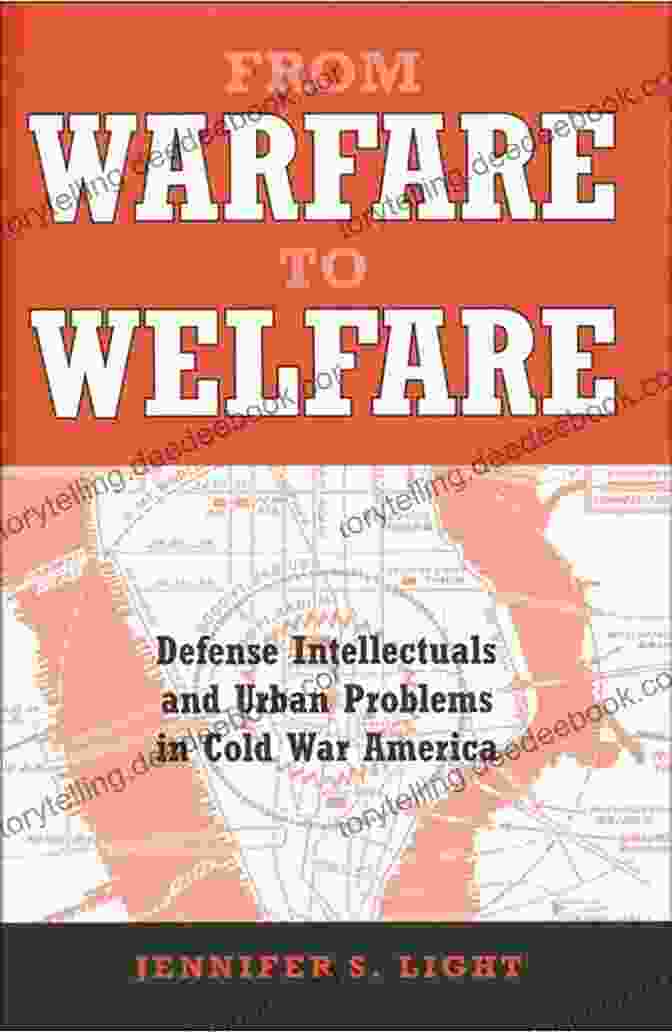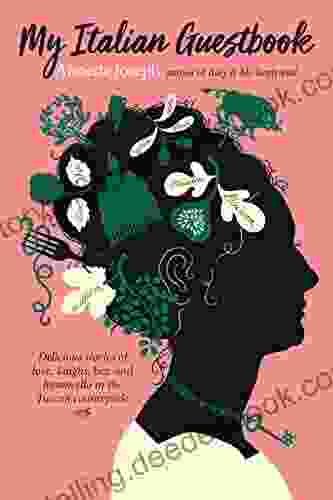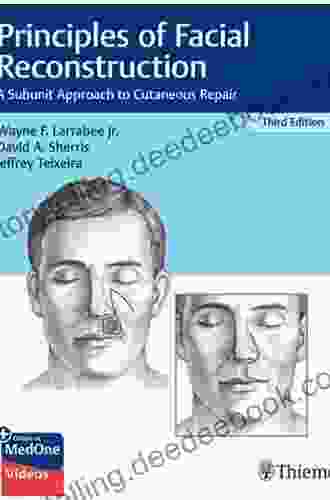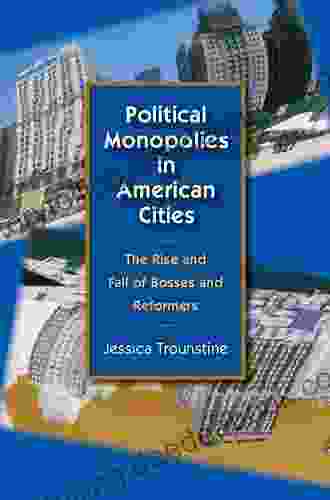Defense Intellectuals and Urban Problems in Cold War America: A Long and Winding Road


4 out of 5
| Language | : | English |
| File size | : | 3803 KB |
| Text-to-Speech | : | Enabled |
| Screen Reader | : | Supported |
| Word Wise | : | Enabled |
| Print length | : | 316 pages |
| Lending | : | Enabled |
| Paperback | : | 218 pages |
| Item Weight | : | 11.5 ounces |
| Dimensions | : | 5.75 x 0.25 x 9.25 inches |
The Cold War was a period of intense rivalry between the United States and the Soviet Union. Both countries competed for global supremacy in a variety of ways, including military, economic, and ideological terms. The Cold War also had a significant impact on American domestic policy, as the government sought to mobilize the nation for a potential conflict with the Soviet Union.
One of the most important domestic policy initiatives of the Cold War era was the effort to address urban problems. The United States experienced a rapid increase in urbanization in the post-World War II period, and this led to a number of social and economic problems, including poverty, crime, and racial tension. The government responded to these problems by launching a variety of programs aimed at improving the lives of urban residents.
Defense intellectuals played a major role in shaping the government's approach to urban problems. These intellectuals were experts in national security and international relations, and they argued that the United States needed to address urban problems in order to maintain its global leadership. They believed that urban problems were a threat to national security, as they could lead to social unrest and political instability. They also argued that urban problems were a moral issue, and that the government had a responsibility to help those in need.
The government's efforts to address urban problems were often controversial. Some critics argued that the government was overstepping its authority by intervening in local affairs. Others argued that the government's programs were too focused on short-term solutions, and that they did not address the underlying causes of urban problems. Despite these criticisms, the government's efforts to address urban problems had a significant impact on American society. These efforts helped to improve the lives of many urban residents, and they also helped to lay the foundation for the modern welfare state.
The Origins of Defense Intellectualism
The origins of defense intellectualism can be traced back to the early days of the Cold War. In the aftermath of World War II, the United States emerged as the world's leading superpower. However, the United States also faced a number of challenges, including the threat of Soviet expansionism and the rise of communism in the developing world. In response to these challenges, the United States government sought to develop a new national security strategy. This strategy was based on the idea of "containment," which aimed to prevent the Soviet Union from expanding its influence beyond its borders.
Containment required the United States to maintain a strong military presence around the world. However, the United States also needed to address the social and economic problems that were facing its own citizens. These problems included poverty, racial inequality, and urban decay. Defense intellectuals argued that the United States could not maintain its global leadership if it did not address these problems at home.
The Role of Defense Intellectuals in the Urban Crisis
In the 1960s, the United States experienced a number of urban riots. These riots were sparked by a variety of factors, including racial tension, poverty, and police brutality. The riots had a profound impact on American society, and they led to a reassessment of the government's approach to urban problems. Defense intellectuals played a major role in this reassessment.
Defense intellectuals argued that the urban riots were a symptom of a deeper problem. They believed that the United States was facing a crisis of legitimacy, and that the government needed to take action to address the root causes of urban unrest. Defense intellectuals proposed a number of solutions to the urban crisis, including increased spending on social programs, job training, and police reform. They also argued that the government needed to address the underlying causes of racial inequality.
The Legacy of Defense Intellectuals
The legacy of defense intellectuals is complex and controversial. Some critics argue that defense intellectuals were too focused on national security, and that they did not pay enough attention to the social and economic problems of urban residents. Others argue that defense intellectuals played a positive role in the development of the modern welfare state.
Ultimately, the legacy of defense intellectuals is a mixed one. They were responsible for some of the most controversial policies of the Cold War era, but they also played a role in shaping the modern welfare state. Their work continues to be debated today, as the United States continues to grapple with the challenges of urban life.
Defense intellectuals played a major role in shaping the government's approach to urban problems in Cold War America. They argued that the United States needed to address urban problems in order to maintain its global leadership. They also argued that urban problems were a moral issue, and that the government had a responsibility to help those in need.
The government's efforts to address urban problems were often controversial. However, these efforts had a significant impact on American society. They helped to improve the lives of many urban residents, and they also helped to lay the foundation for the modern welfare state.
4 out of 5
| Language | : | English |
| File size | : | 3803 KB |
| Text-to-Speech | : | Enabled |
| Screen Reader | : | Supported |
| Word Wise | : | Enabled |
| Print length | : | 316 pages |
| Lending | : | Enabled |
| Paperback | : | 218 pages |
| Item Weight | : | 11.5 ounces |
| Dimensions | : | 5.75 x 0.25 x 9.25 inches |
Do you want to contribute by writing guest posts on this blog?
Please contact us and send us a resume of previous articles that you have written.
 Novel
Novel Page
Page Text
Text Genre
Genre Library
Library E-book
E-book Newspaper
Newspaper Sentence
Sentence Shelf
Shelf Glossary
Glossary Bibliography
Bibliography Preface
Preface Annotation
Annotation Footnote
Footnote Manuscript
Manuscript Scroll
Scroll Bestseller
Bestseller Library card
Library card Memoir
Memoir Reference
Reference Encyclopedia
Encyclopedia Dictionary
Dictionary Thesaurus
Thesaurus Narrator
Narrator Catalog
Catalog Borrowing
Borrowing Stacks
Stacks Archives
Archives Research
Research Scholarly
Scholarly Lending
Lending Academic
Academic Journals
Journals Reading Room
Reading Room Rare Books
Rare Books Interlibrary
Interlibrary Thesis
Thesis Reading List
Reading List Book Club
Book Club Theory
Theory Takashi Tokoro
Takashi Tokoro John Dewey
John Dewey Michelle E Martin
Michelle E Martin Nicholas Walker
Nicholas Walker Michael O Tunnell
Michael O Tunnell Darla Isackson
Darla Isackson Andrew Walsh
Andrew Walsh Phil Valentine
Phil Valentine Gordon L Atwell
Gordon L Atwell Malcolm Rockwood
Malcolm Rockwood Alvin C Burns
Alvin C Burns Shaneeka Porter
Shaneeka Porter Melissa Lozada Oliva
Melissa Lozada Oliva Chloe Taylor
Chloe Taylor Lindsay Nicholson
Lindsay Nicholson Hudson Talbott
Hudson Talbott Lila Segal
Lila Segal Douglas Hackney
Douglas Hackney Julie Otsuka
Julie Otsuka Nick Wareham
Nick Wareham
Light bulbAdvertise smarter! Our strategic ad space ensures maximum exposure. Reserve your spot today!

 Jayson PowellThe Ultimate Guide To Attracting Your Twin Flame: Signs You Need To Know And...
Jayson PowellThe Ultimate Guide To Attracting Your Twin Flame: Signs You Need To Know And...
 Tom HayesSleep Disordered Breathing in Children: A Comprehensive Guide for Parents and...
Tom HayesSleep Disordered Breathing in Children: A Comprehensive Guide for Parents and... Greg CoxFollow ·15.6k
Greg CoxFollow ·15.6k Ronald SimmonsFollow ·3.1k
Ronald SimmonsFollow ·3.1k Edward BellFollow ·10.5k
Edward BellFollow ·10.5k Braden WardFollow ·7.4k
Braden WardFollow ·7.4k Jedidiah HayesFollow ·13.2k
Jedidiah HayesFollow ·13.2k Christian BarnesFollow ·8.5k
Christian BarnesFollow ·8.5k Brennan BlairFollow ·4.8k
Brennan BlairFollow ·4.8k Vladimir NabokovFollow ·19.9k
Vladimir NabokovFollow ·19.9k

 Howard Blair
Howard BlairClassical Music Themes for Easy Mandolin, Volume One
Classical Music Themes for Easy Mandolin,...

 Paulo Coelho
Paulo CoelhoThe Heretic Tomb: Unraveling the Mysteries of a Lost...
Synopsis In Simon Rose's captivating debut...

 Rodney Parker
Rodney ParkerThe Passionate Friends Annotated Wells: A Deeper...
Unveiling the...

 Ed Cooper
Ed CooperDelicious Stories of Love, Laughs, Lies, and Limoncello...
In the heart of...

 Elmer Powell
Elmer PowellHal Leonard Piano For Kids Songbook: Unleashing the...
Music holds immense...
4 out of 5
| Language | : | English |
| File size | : | 3803 KB |
| Text-to-Speech | : | Enabled |
| Screen Reader | : | Supported |
| Word Wise | : | Enabled |
| Print length | : | 316 pages |
| Lending | : | Enabled |
| Paperback | : | 218 pages |
| Item Weight | : | 11.5 ounces |
| Dimensions | : | 5.75 x 0.25 x 9.25 inches |









